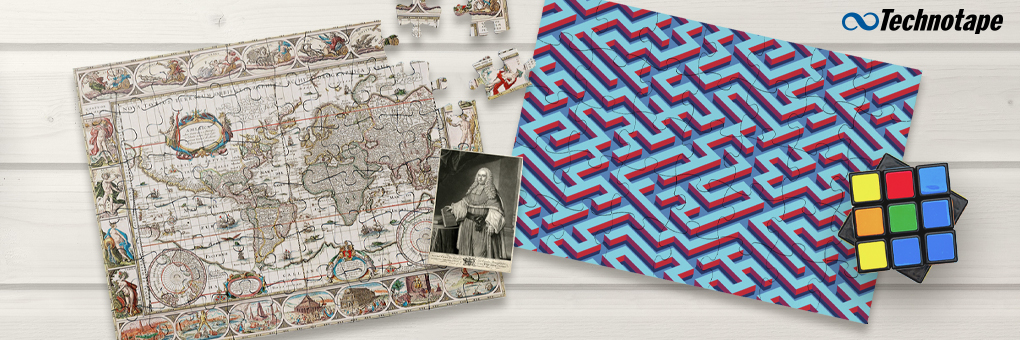The 10 positive effects puzzles have on your brain
"Have you heard the saying that “In the past, everything used to be better?” Whether you believe that or not, opinions are always divided. However, when it comes to games, the classic games are always a go to. Like jigsaw puzzles. Scientific research shows that jigsaw puzzles have surprising benefits for your brain!"
Jigsaw puzzles have been popular for centuries. The very first puzzle is said to have been invented in 1760 by the London cartographer and engraver John Spilsbury. He put a map on wood and cut out the countries. Then, the local school used this puzzle in geography lessons. This was a great success, and all sorts of images other than maps soon followed.
Fast forward to the present: puzzles are now available in both wood and cardboard and can be personalized! You can create personalized puzzles with any image or photo you can imagine!
The 10 benefits of using puzzles
That sounds very nice and all, but what makes puzzles so good for your brain? Research shows that these are the 10 benefits of using puzzles:
-
Puzzles increase your IQ
You need your full attention while building a puzzle. If you do this every day, your IQ will increase by 4 points. Pretty impressive, right? If children build a lot of puzzles, their IQ will increase at a very young age. -
Building puzzles improves your short-term memory
By using and putting together puzzles you develop more connections between your brain cells. This provides the mental speed to think and improves memory recall. -
Building puzzles trains both sides of your brain
The left part of the brain controls the logical part, and the right part works with creativity and intuition. While building a puzzle, both parts are involved, so you train them at the same time. -
Puzzling stimulates visual-spatial reasoning
While puzzling, you think about the shape and colors of each individual piece, and where it fits. The insight you develop with this helps you, for example, while reading a map or puzzling groceries in your bag. -
Puzzling trains your attention to detail
Many puzzle pieces look very similar. This requires enormous attention to the smallest details that make the difference. -
Puzzles reduce stress
While you build a puzzle, your brain is fully focused on solving it. You don't think about work, household or other matters for a while, so you relax at that moment. Building puzzles on a regular basis greatly reduces stress levels. -
Puzzling improves your problem-solving skills
You need different techniques to complete the puzzle. These skills help you be more creative in problem solving, critical thinking and, adaptability. -
Puzzles increase your productivity
Because you are so focused while puzzling, your productivity increases. Doing puzzles is therefore a good activity as a short break from work. -
Doing puzzles helps you work together better
Puzzling is a very suitable game to do in group settings. Building puzzles with others on a regular basis strengthens your bond with the other person. And at the office, for example, it helps you to work better with colleagues. -
Making puzzles ensures a longer and healthy life
According to studies, if you make puzzles regularly, you have less chance of memory loss, Alzheimer's or dementia.
Make your own puzzles with your own design
Would you like to create the entire puzzle yourself, really from scratch? Just like John Spilsbury? This is now possible with blank sublimation puzzles. You can print these with a flat press with any desired print. Whether it is a text, image or photo. Any print is possible.
Zusammenhängende Posts

Top 5 Sublimation Produkte für Spuktakuläre Halloween-Designs




